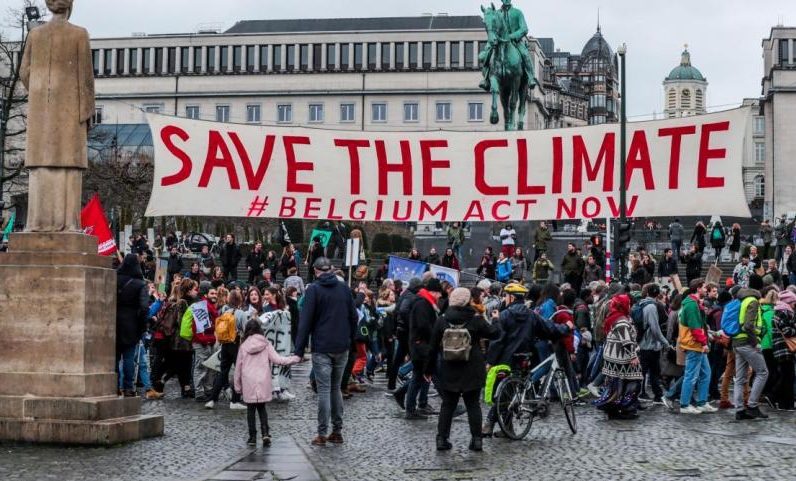The world’s leading group of climate scientists delivered its most dire warning yet: the planet is nearing catastrophic levels of heating and immediate, radical action is required. Governments around the world have seven years to half greenhouse gas emissions to avoid irreversible change.
On Monday, the UN Intergovernmental Panel on Climate Change (IPCC) released the final instalment of its current assessment cycle, called the synthesis report. It summarizes the work the panel has done in the last eight years and outlines how we could limit global temperature rise to 1.5 °C compared to pre-industrial levels. The report represents a final warning, The Guardian reports.
“There are multiple, feasible and effective options to reduce emissions and adapt to human-caused climate change, and they are available now,” said the IPCC in a statement issued upon the report's publication.
'The tip of the tipping point'
Climate experts stress that we are talking about a last-chance effort to limit global warming to the 1.5 °C target, beyond which damage to our climate will become irreversible. In particular, this will increase the frequency of extreme heat waves and sea level rise. The planet is currently at 1.1 °C warming.
“Humanity is on thin ice – and that ice is melting fast,” declared UN Secretary-General António Guterres in a statement at the launch of the synthesis report. “We are at the tip of a tipping point.”
“The evidence put forward by #IPCC for #climatechange has been clear, convincing & irrefutable. The IPCC must now point the way to solutions & so the urgent need to end global heating with cold, hard facts.” UN SG @antonioguterres at the opening for the 58th Session of the IPCC. pic.twitter.com/UeT0AQROuY
— IPCC (@IPCC_CH) March 13, 2023
The latest report warns that almost half of the world’s population lives in highly vulnerable regions. In these zones, mortality from floods, droughts and storms was 15 higher than a decade earlier.
There is enough global capital to reduce or avoid carbon-intensive consumption in every community in the world, but finance is “insufficient and misaligned,” the authors said. They also insisted on the need to prioritize “equity, climate justice, social justice, inclusion” in tackling climate risks.
The authors highlighted that it is the vulnerable communities that have contributed the least to current change which are disproportionately affected.
"For any given future warming level, many climate related risks are higher than assessed in AR5..."
"The choices and actions implemented in this decade will have impacts now and for thousands of years" ➡️ Important new @IPCC_CH report: https://t.co/F0peaQZtgy #ClimateChange pic.twitter.com/EUSjll2dXx — Zack Labe (@ZLabe) March 20, 2023
The report will inform the UN climate summit COP28, due to take place in Dubai in December. It aims to pave the way to concrete commitments to help the most-affected countries that are demanding climate reparations from highly industrialized nations. This issue was already high on the agenda of last year's COP.
This year’s conference will be the first to scrutinize nations’ progress on cutting greenhouse gas emissions since the Paris climate agreement in 2015. Yet it is certain that almost every signatory will be way off their goals.
Other climate experts have grimmer predictions. Peter Thorne, director of the climate research centre at Maynooth University reacted to the latest IPCC report with despondency: “We will, almost regardless of the emissions scenario given, reach 1.5C in the first half of the next decade."
Related News
- 'Real and palpable fear': Doomsday Clock CEO on avoiding nuclear apocalypse
- Global CO2 emissions set new records, IEA report shows
If the dire warnings of the report sound repetitive, they are. The IPCC released its first report over 30 years ago and works in five to eight-year cycles, compiling massive amounts of information. In 1995, the IPCC first warned of the serious threat global warming poses.
The report released today concludes the body's sixth cycle, meaning that it will not be for some years that the group reconvenes to compile and publish reports.

